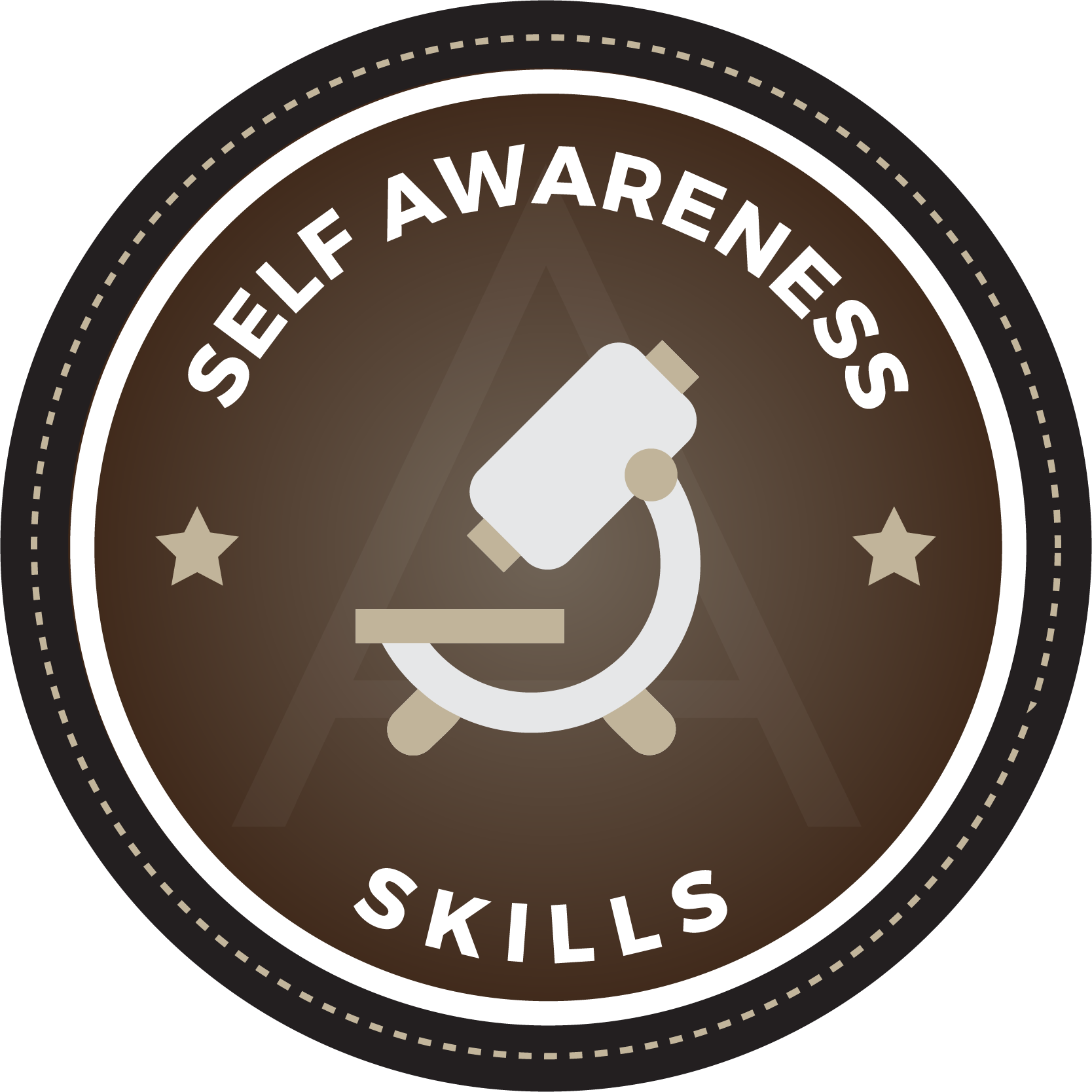How to Demonstrate Self Awareness on Casper®

About Self Awareness
Self-awareness is a skill that we gain from a young age. We learn to understand our inner world and the effect we have on others.
As a health professional, this means that you must be aware of your limitations and willing to disclose them when necessary.
Self Awareness as a Skill: What Does That Really Mean?
If you practice the skill of self-awareness, you will have an accurate picture of yourself (e.g. if you are low in self-awareness, you may believe that you are an amazing cook because you are not paying attention to how others react when they eat your burned or undercooked food; your perception would not match up with what your friends and family would say.) This does not mean that you shouldn't believe in yourself, but this belief should be grounded in acceptance and realism.
When exercising self-awareness through a mindful and reflective approach to your daily life, you help develop your insight and open yourself up to a more diverse range of perspectives. Self-awareness should foster a willingness to adapt as you gain insight into yourself, others, and the world around you.
Self-awareness promotes the ability to self-regulate-this is exercising willpower and discipline to keep your attention, thoughts, feelings, and actions under your control. To exert this control, you must first be able to identify and monitor your cognitive and emotional processes. (E.g. You should be able to identify when a particular person or situation causes you to stress and then actively employ coping strategies to deal with it.)
Self Awareness in a Professional Setting
In order to better understand how to perform well on Self Awareness on Casper, it is helpful to understand why this is being measured in the first place.
Why are medical schools and other health professions programs so interested in assessing Self Awareness?
Let's look at an example in a professional context for some insight. Below, we will discuss the skill of self-awareness in an obstetrician's practice.
Dr. Shirazi had been delivering babies for 10 years, but he could still remember his excitement the first time he held a newborn baby. He had four children of his own, and his wife also worked full-time. Shifts had felt especially long and tiring over the last winter, and even getting out of bed sometimes felt like a challenge. Tiredness was common in his profession, though, and he had learned to push through it.
His colleagues had always been impressed with how he connected with expectant mothers, being able to put them at ease during even difficult pregnancies and deliveries. Lately though, he'd felt distant from his patients. Dr. Shirazi saw a first-time mother who had developed gestational diabetes. She was upset and worried that this was going to impact her baby. He was usually reassuring, but found himself reciting the risks this time with aloofness rather than warmth.
Dr. Shirazi thought about this patient and how he treated her on his drive home. He realized that he had blamed the patient for her problem, and this had impacted her care. He wondered why he felt this way and what he should do about it. He decided to do something he hadn't done since medical school: write in his journal. Reading through his entry, Dr. Shirazi realized that he had been failing to recognize his limitations, and that he was burnt out.
This was an important turning point for Dr. Shirazi, who was then able to make changes to his schedule and personal life, regaining his excitement for obstetrics and his connection to his patients.
***
If Dr. Shirazi hadn't exercised the skill of self-awareness, his burnout and distance from his patients could have deteriorated much further before any action was taken. Self awareness in the people-oriented and high-stress field of healthcare is essential.
Given this example, you can understand why medical schools and other health professions programs are so interested in choosing applicants who are able to exercise self awareness.
So How Does Casper Evaluate You on this Skill?
Casper poses common scenarios and reflective questions aimed to determine if you possess the People Skills that you will eventually require to be a successful professional. Start Practicing
Are you READY for Casper?
We prepare candidates for Casper with practice questions, strategies to improve critical thinking skills, scoring on our simulated tests, and one-on-one coaching sessions to maximize performance on Casper. Let's get you ready!
Simulated Casper Tests
Challenge your Casper skills with 4 difficult Simulated Casper Tests (Levels 1-4). Start at Level 1 and increase the level of difficulty!
Starting at $27 Go to Simulated TestsSimulated Prep Courses
Learn strategies for answering difficult Casper questions and convert beginner to advanced answers.
Bundles with Coaching
Fast-track your skills with our bundles (simulations and courses with scoring and coaching add-ons) to identify weak areas.
Starting at $197 Go to our Bundles